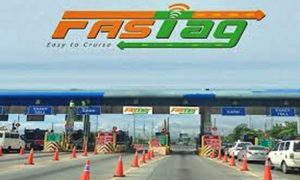The ministry of road transport and highways has made it mandatory for all vehicles from January 1, 2021, carry FASTags in order to enhance digital payments and ease bottlenecks at highway toll counters. FASTags are reloadable tags usually attached to a vehicle’s windshield, enabling automatic deduction of toll charges on national highways.
Read on to find out more about FASTag technology.
What is a FASTag?
FASTag is a sticker attached to the windshield and makes use of Radio-Frequency Identification (RFID) technology, which is featured as a barcode. This is linked to the registration details of a vehicle and a bank account through which the toll charges are deducted. It is an entirely cashless transaction, made possible by the simple use of a FASTag scanner.
What kind of vehicles have to avail FASTag?
FASTags are currently mandatory only for four-wheelers, two-wheelers have been exempted. Two categories of vehicles: Category ‘M’ for four-wheelers carrying passengers, and Category ‘N’ for four-wheelers carrying goods, and in some cases may be also used to ferry passengers.
Where can FASTag be bought and what kind of documents are required?
Vehicle owners have to visit a Point of Sale (POS) location or an Issuer Agency to get a FASTag account created. A list of POS locations is available in the official website created for FASTag. For personal vehicles owners will need to carry their car registration, passport size photo, and ID proof, and address proof, a valid driving license acts as both an ID proof and address proof.
What is the price and validity of a FASTag?
Every vehicle owner has to pay a one-time deposit fee to avail a FASTag. The cost of which depends on the category of vehicle. It starts at Rs 200 for light vehicles like cars, vans, and jeeps, and goes up to Rs 500 for heavy vehicles like tractors, earthmoving machinery etc. The minimum recharge amount for light vehicles starts as low as Rs 100 and goes up to Rs 300 for heavier ones.
By Hindustan Times
























 WhatsApp us
WhatsApp us